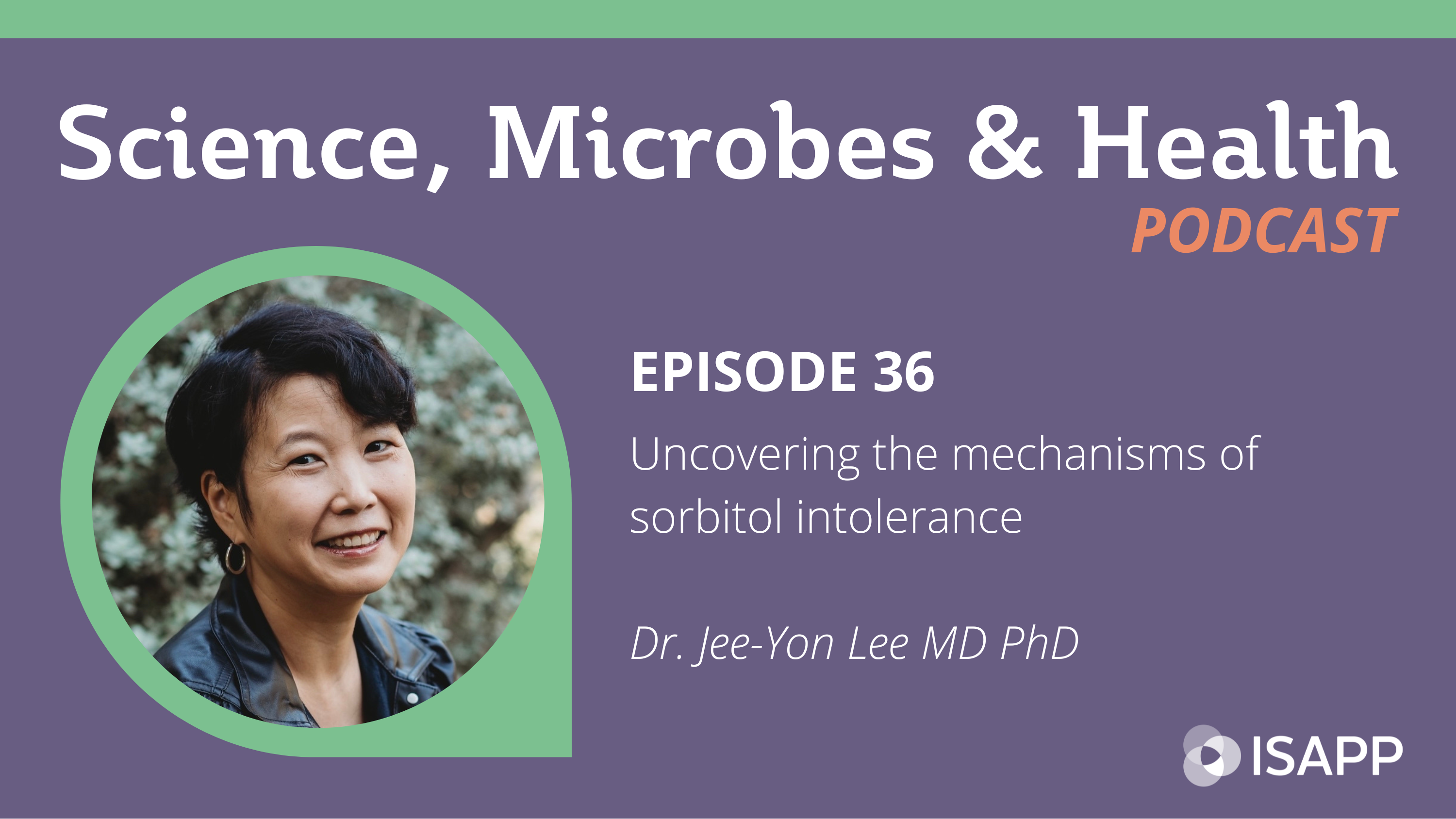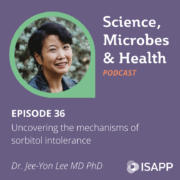Episode 36: Uncovering the mechanisms of sorbitol intolerance, with Dr. Jee-Yon Lee MD PhD

Podcast: Play in new window | Download
Subscribe: Apple Podcasts | Spotify | RSS
This episode features Jee-Yon Lee MD PhD, assistant project scientist at the University of California Davis, USA, speaking about a recent paper on the mechanisms of sorbitol intolerance and the contributions of the gut microbiota. Dr. Lee explains how gut microbes in the large intestine can drive sorbitol intolerance, and how their research group designed a probiotic intervention to ameliorate it in a mouse model.
Key topics from this episode:
- Dr. Lee joined Baumler lab in 2017 to study how ecological causes such as diet or chronic disease can change host cell metabolism, thereby changing the gut microbiota, and also the effect of the gut microbiota on chronic diseases.
- Sorbitol is a sugar alcohol used as an artificial sweetener. It cannot be absorbed or catabolized in the small intestine so it reaches the large intestine and draws water into the lumen through osmosis. Large amounts cause diarrhea, but normally small amounts do not.
- Some people are sensitive to small amounts of sorbitol and are said to have sorbitol intolerance. Where does the intolerance originate? Possibly the inability of bacteria in the large intestine to catabolize sorbitol using enzymes.
- Sorbitol intolerance (causing diarrhea) can be transient, such as after taking antibiotics.
- What is happening in sustained sorbitol intolerance? Clinically, a recent history of taking antibiotics plus a high-fat diet is associated with diarrhea as well as low-grade inflammation. A mouse model showed that a high-fat diet plus antibiotics led to low-grade inflammation, which may be at the root of sorbitol intolerance.
- Clostridia are the main bacteria catabolizing sorbitol in the gut. Overall, a high-fat diet plus antibiotics together drive the gut ‘dysbiosis’, and contribute to the chronic depletion of mitochondrial function in the colonic epithelium. This makes the colonic environment less hypoxic, sustains the depletion of Clostridia, and thereby induces sorbitol intolerance.
- From this, Dr. Lee helped design a probiotic intervention. They selected 3 strains of bacteria and tested them with the high-fat diet and antibiotics mouse model. All of them protected the host from sorbitol intolerance in slightly different ways.
- Decreased sorbitol dehydrogenase activity may be a biomarker of sorbitol intolerance; currently there’s no way to diagnose this intolerance clinically, so patients typically cut out the substance to discover their intolerance.
Episode abbreviations and links:
- Paper on sorbitol intolerance discussed in the podcast: High fat intake sustains sorbitol intolerance after antibiotic-mediated Clostridia depletion from the gut microbiota
- Review: The microbiome and gut homeostasis
About Dr. Jee-Yon Lee MD PhD:
Jee-Yon Lee is an Assistant Project Scientist in Dr. Andreas Baumler’s lab at UC Davis, focusing on studying host-microbial interactions and their impact on human health and non-communicable diseases. She earned her MD and PhD from Yonsei University College of Medicine and served as a family medicine physician in South Korea until 2017. She joined Dr. Andreas Baumler’s lab in 2017 as a visiting scholar and completed her postdoctoral research there. Dr. Lee’s long-term research goal is to elucidate the ecological causes of dysbiosis, its consequences on the development of human diseases, and to find potential therapeutics targeting the microbiome.





